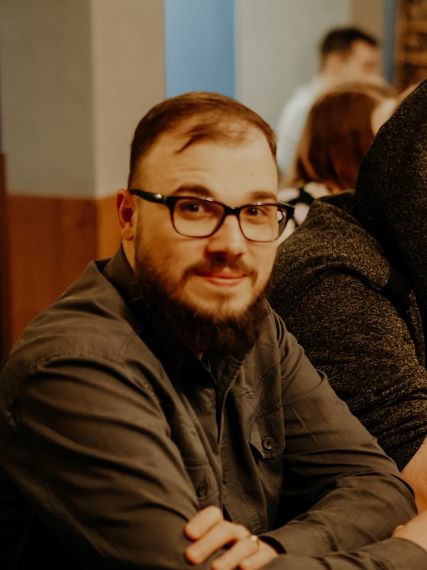Full-professor at Faculty of Chemistry
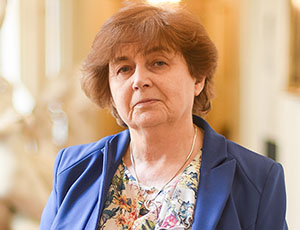 email: grazyna.stochel [at] uj.edu.pl
email: grazyna.stochel [at] uj.edu.pl
phone: +48 12 663 22 43
Jagiellonian University, Faculty of Chemistry
Gronostajowa 2, 30-387 Kraków
Room C1 - 25
Professor Grazyna Stochel is the Head of the Coordination and Bioinorganic Physicochemistry Group. From 2008–2012 and from 2012–2016 she was the Dean of the Faculty of Chemistry of the Jagiellonian University, and from 2018-2020 she was a member of the Jagiellonian University Council. Her scientific interest is focused on coordination and bioinorganic chemistry, photochemistry as well as advanced materials.
Research Fellow
email: olga.mazuryk [at] uj.edu.pl
phone: +48 12 663 24 87
Jagiellonian University, Faculty of Chemistry
Gronostajowa 2, 30-387 Kraków
Room C1 - 04
Olga Mazuryk obtained her Doctoral degree in 2015. Her PhD thesis focused on the biological activity of ruthenium polypyridyl complexes in relation to their physicochemical and photophysical properties. Since then, she continues to explore the biological activity of metal complexes, mainly Ru compounds, trying to find the origin of their cytotoxic, phototoxic, and antimetastatic activities. In her work, she relies mainly on different in vitro tests with the use of flow cytometry, fluorescence microscopy, varying spectroscopic assays, and other molecular biology analyses, as well as classical spectroscopic methods to investigate the reactivity of metal complexes.
Research Fellow
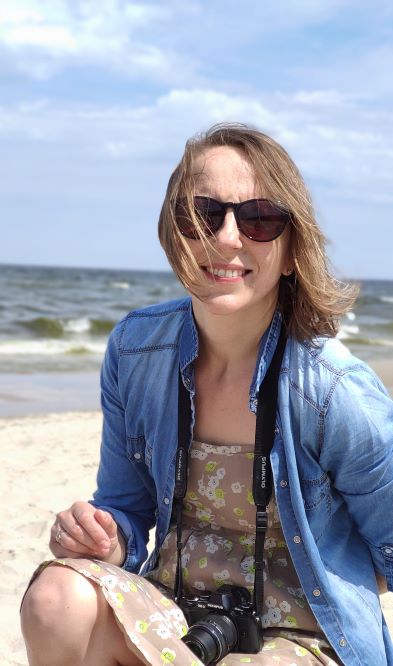 email: maria.oszajca [at] uj.edu.pl
email: maria.oszajca [at] uj.edu.pl
phone: +48 12 663 24 87
Jagiellonian University, Faculty of Chemistry
Gronostajowa 2, 30-387 Kraków
Room C1 - 04
Maria Oszajca obtained her PhD for her work involving the activation of biologically relevant small molecules (NO, O2, H2O2 etc.) on iron porphyrins in 2014. Since then, her scientific interest remained related to the mechanistic elucidation of small molecule activation in biologically relevant systems. Her current work focuses on nitric oxide biochemistry and metal-catalyzed redox modulation of NO signaling. In her work, she uses an array of spectroscopic methods and fast reaction kinetic techniques including stopped-flow and flash photolysis to follow reaction routes and use the collected data to make conclusions with regard to underlying molecular mechanisms for observed processes.
Research and technical assistant
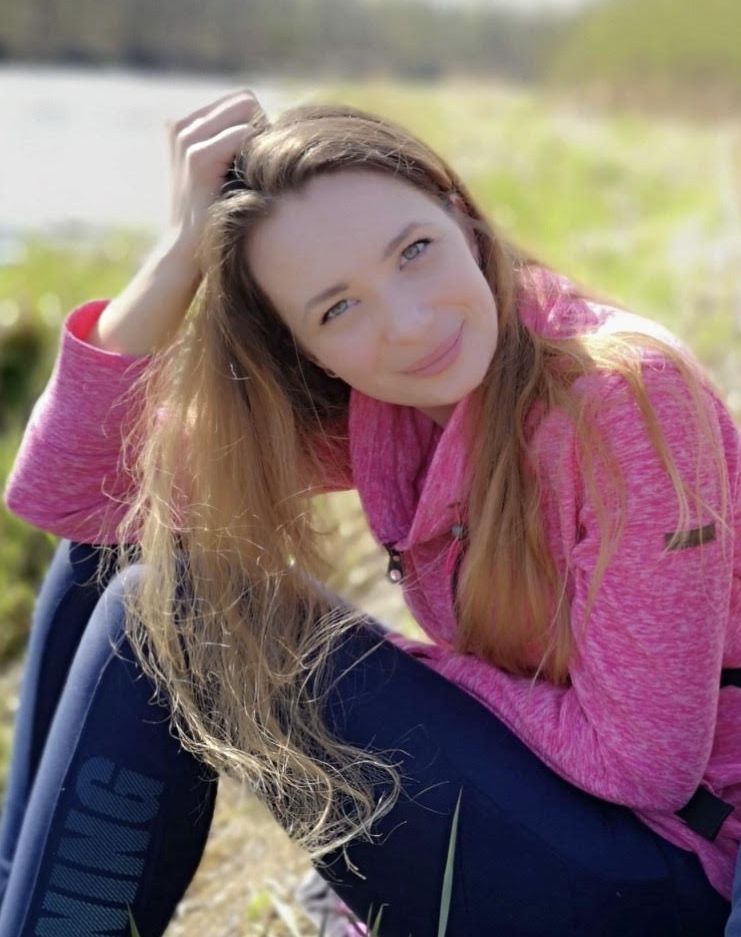 email: ilona.gurgul [at] uj.edu.pl
email: ilona.gurgul [at] uj.edu.pl
phone: +48 12 663 25 05
Jagiellonian University, Faculty of Chemistry
Gronostajowa 2, 30-387 Kraków
Room C1 - 28
Ilona Gurgul obtained her Doctoral degree in 2022. Her PhD thesis focused on the biological activity of ruthenium polypyridyl complexes, especially with an emphasis on evaluating their antimetastatic effects. Currently, she is continuing to work on the biological activity of metal complexes and has started working on endothelial cells in relation to aberration in their functionality due to senescence. She is applying in her work various in vitro tests including molecular biology analyses.
PhD Student
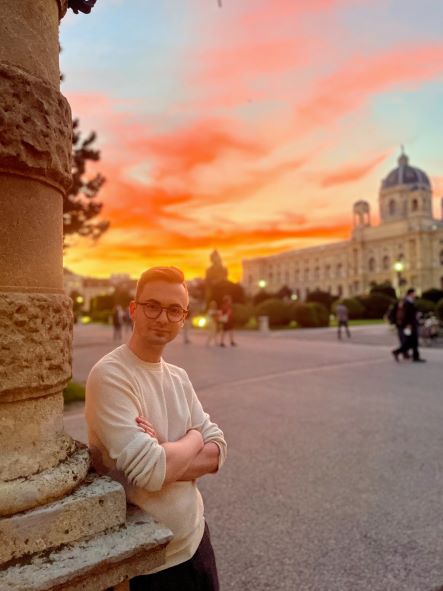 email: p.gajda-morszewski [at] uj.edu.pl
email: p.gajda-morszewski [at] uj.edu.pl
phone: +48 12 663 25 03
Jagiellonian University, Faculty of Chemistry
Gronostajowa 2, 30-387 Kraków
Room C1 - 26
Przemek graduated in biological chemistry in 2019 at Jagiellonian University. His master thesis focused on the interactions of polypyridyl ruthenium complexes with albumin. The aim of the thesis was to develop the methodology for adduct preparation and their physicochemical characterization. In scientific work, Przemek is interested in intramolecular interactions of proteins and other small molecules and those interactions' consequences for biological activity. He is the principal investigator of the Preludium 18 project (title: "Lactoferrin and versatile polymers as a tool for selective and targeted delivery of anticancer hydrophobic drugs in the gastric tract").
Graduate student
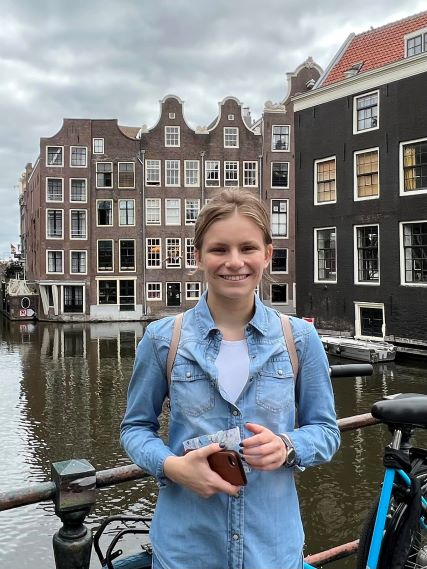 email: anna4.poznanska [at] student.uj.edu.pl
email: anna4.poznanska [at] student.uj.edu.pl
Ania has started studying Chemistry at Jagiellonian University in 2019. She is interested in proteins and their interactions with small molecules, leading to their biological activity. Ania is learning to explore them using molecular docking and biophysical methods. Currently, she is working on her master’s degree concerning hypoxia sensors.
Graduate student
 email: magdaa.michalska [at] student.uj.edu.pl
email: magdaa.michalska [at] student.uj.edu.pl
Magdalena started studying Chemistry at Jagiellonian University in 2019. She is mainly interested in the organic synthesis of bioactive molecules. Her bachelor's project concerned the synthesis of potential inhibitors of the PD-1/PD-L1 immune checkpoint, one of the most explored targets in cancer immuntherapy. In 2022 she started master's studies in Medicinal Chemistry at the same university. Currently, she is working on her Master's degree concerning the synthesis of fluorescent triazapentalene derivatives to apply them as building blocks of hypoxia sensors. This project is running in cooperation with Prof. Franck Suzenet (University of Orleans) within the Double Diploma program.
Undergarduate student
 email: eryk.federyga [at] student.uj.edu.pl
email: eryk.federyga [at] student.uj.edu.pl
Eryk started studying Medicinal Chemistry at Jagiellonian University in 2022. He is interested in the biological activity of proteins and metal complexes. He participated in the project on the encapsulation of anticancer drugs into microparticles and the evaluation of protein release from microparticles. Currently, he has started training in a cell culture laboratory to undertake studies on the anticancer activity of metal complexes.
PhD students
Dr Ewelina Janczy-Cempa
Ewelina Janczy-Cempa obtained her MSc Degree in Chemistry in 2018 from Jagiellonian University. She obtained her Doctoral degree in 2023 at the same University. Her PhD thesis was entitled " The characterization of selective sensors for optical imaging of hypoxia in cancer cells and study of its effect on the anticancer effectiveness of polypyridyl ruthenium complexes". Her scientific interest was mainly devoted to designing sensors for hypoxia assessment and antimetastatic activity of ruthenium compounds.Dr Michał Łomzik
Michał Łomzik obtained his MSc Degree in Chemistry from Jagiellonian University and Orleans University in France in 2012 through a double-diploma program. He then continued his Ph.D. studies at Jagiellonian University and Lorraine University in France under the BGF Doktorat en Cotutelle program. He defended his PhD entitled “Synthesis and characterization of hybrid drugs based on ruthenium complex moiety and biologically active organic compounds” in 2016. During his doctoral studies, he was the Principal Investigator in the “Diamentowy Grant” program, funded by the Polish Ministry of Science and Higher Education. Since 2017, he has been employed at the Department of Organic Chemistry, Faculty of Chemistry, University of Lodz. Michał’s research primarily focuses on the synthesis of organometallic molecules, particularly ruthenium, osmium, rhodium, and iridium complexes, for their potential anticancer applications.

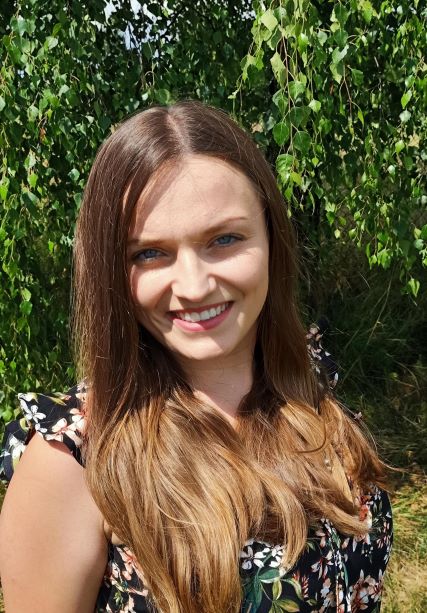 ORC
ORC